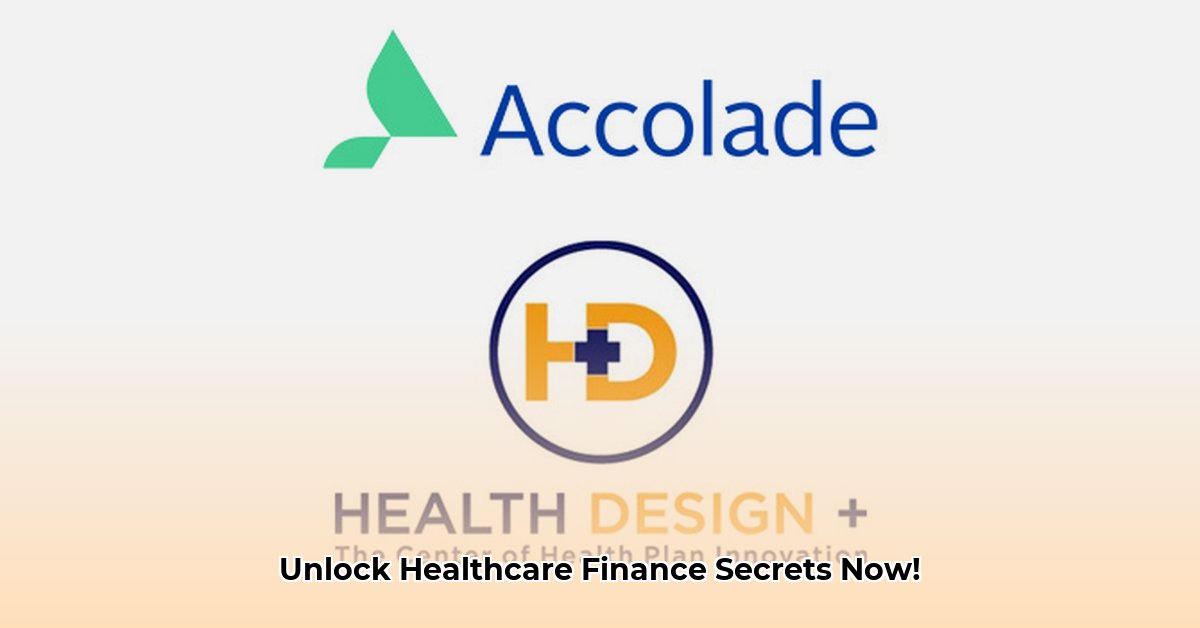
Finding Accolade's phone number is a straightforward task, yet it serves as a gateway to a far more significant discussion: the transformative impact of financial technology (fintech) on healthcare. For more on healthcare in Texas, see Odessa Regional Medical Center. This article delves into the burgeoning world of healthcare fintech, exploring its potential to simplify healthcare access, improve cost transparency, and enhance the overall patient experience.
Healthcare Costs: A Fintech-Fueled Revolution?
Healthcare expenses continue to rise, placing a considerable burden on individuals and families. This escalating cost creates a pressing need for innovative solutions. Fintech steps in, offering the promise of streamlined payment systems, predictive billing tools, and personalized financial planning for healthcare. But can these technologies truly address the complexities and challenges of healthcare finance? Is the promise of simplified healthcare finances a realistic expectation?
The Promise and Pitfalls of Streamlined Payments
The potential benefits of healthcare fintech are undeniable. Easier access to financial assistance, readily understandable bills, and proactive expense management tools are within reach. However, the path to this utopian vision isn't without obstacles. Robust data security is paramount. Navigating the complex regulatory landscape presents a significant hurdle. And successfully integrating disparate systems remains a major challenge. How can we ensure patient data privacy against growing cybersecurity threats across the rapidly evolving fintech landscape?
Accolade and the Broader Fintech Ecosystem
While securing Accolade's phone number may be an immediate goal, the focus should shift to understanding its role within the larger context of healthcare fintech and its overall effectiveness. Accolade is a representative example of companies leveraging technology to improve healthcare affordability and accessibility. Its operations provide a useful case study for analyzing the efficacy of such platforms and their actual impact on the patient experience. What measurable results demonstrate their success in simplifying the process of navigating healthcare expenses?
Key Players in the Healthcare Fintech Revolution
The healthcare fintech landscape is a dynamic ecosystem involving multiple stakeholders:
- Healthcare Providers: Increasingly adopting digital payment systems and data analytics to streamline operations and improve patient care.
- Insurance Companies: Leveraging fintech for risk assessment, fraud detection, and personalized insurance plan creation.
- Patients: The ultimate beneficiaries, hoping for greater transparency, affordability, and manageable healthcare costs.
- Fintech Companies: Driving innovation and developing new technologies to address the challenges of healthcare finance.
- Government Regulators: Protecting patient data, ensuring fair practices, and maintaining the overall security and integrity of the system.
Practical Steps for Navigating Healthcare Finances
Understanding the broader implications of healthcare fintech is crucial. Here's a guide to effective navigation for patients and providers alike:
For Patients:
- Explore Financial Assistance Options: Actively search for and utilize financial assistance programs to reduce out-of-pocket costs.
- Embrace Digital Tools: Utilize online platforms and apps for bill management and expense tracking, potentially improving convenience and clarity.
- Proactive Communication: Don't hesitate to seek clarification on billing, payment plans, or any financial aspect of healthcare.
For Healthcare Providers:
- Prioritize Secure Digital Payments: Invest in secure online payment gateways and best-practice security measures to safeguard patient data.
- Integrate Telehealth and Billing: Streamline the patient experience by establishing seamless connections between telehealth platforms and billing systems.
- Utilize AI-Powered Tools: Explore AI technologies to assist patients with understanding their financial responsibilities and improve overall clarity.
The Future of Healthcare Fintech: A Look Ahead
The future of healthcare fintech likely involves increased integration of AI and blockchain technologies, enabling even more personalized approaches to healthcare management. Personalized financial wellness programs will potentially play a larger role, assisting individuals with proactive healthcare expense planning. The ongoing challenge will be balancing innovation with robust data security and regulatory compliance. Ultimately, the goal is to create a more accessible, affordable, and transparent healthcare system for all.
Mitigating Data Security Risks in AI-Powered Healthcare Fintech
The integration of AI in healthcare finance brings substantial security concerns. The extensive use of sensitive patient data within complex algorithms creates vulnerabilities for cyberattacks. This poses an immediate threat requiring robust solution strategies.
Key Security Measures: A Multi-Layered Approach
Multiple layers of security are vital. Key strategies include:
- Data Encryption: Implementing strong encryption methods for data both at rest and in transit is paramount, minimizing the impact of any potential data breach.
- Multi-Factor Authentication (MFA): Adding MFA as an extra layer of security significantly reduces unauthorized access.
- Employee Security Training: Regular, thorough training is essential to equip employees to defend against cyber threats and ensure a culture of security awareness.
- AI-Driven Security Systems: Employing AI to monitor for threats and adapt to evolving attack methods provides proactive threat detection.
- Regulatory Compliance: Strict adherence to data privacy regulations such as HIPAA and GDPR is mandatory to avoid legal repercussions.
- Data Minimization and Anonymization: Limiting collected data and anonymizing what's collected significantly decreases the risk associated with a data breach.
- Explainable AI (XAI): Using XAI clarifies how decisions are made, improving transparency and trustworthiness.
- Incident Response Plan: Having a comprehensive plan in place is crucial in case of a data breach to ensure a swift and coordinated response.